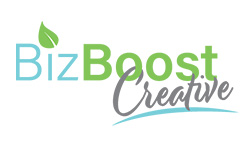 This topic came up when I was visiting my local hairdresser recently. She runs a relatively new salon and has just started marketing her business online. Interestingly, she’s chosen not to have a website but instead rely on her social media accounts instead.
This topic came up when I was visiting my local hairdresser recently. She runs a relatively new salon and has just started marketing her business online. Interestingly, she’s chosen not to have a website but instead rely on her social media accounts instead.
I knew this fact (after all, I had looked up her contact details on Facebook instead of a website) but I hadn’t thought much of it. It wasn’t until I mentioned in passing that I work for a web design business, that she said:
“Do you find that you still have much need for that? These days, with social media, it’s not really necessary for a business to have a website”.
The question took me aback for a moment as I’d never really thought of that possibility before. Like any other web developer human being, I never like to think that my job might one day be redundant. But she did get me thinking about the benefits of social media:
- You can engage with current and potential clients
- You can share information about your products and services
- You can add all your contact details for anyone who might want to contact you
- Many social media accounts will also appear in google search results
- You can even sell things on Facebook these days. There are also other platforms like Etsy or Ebay that can be used as an online store.
So, is a website even necessary?
The good news is that I’m not out of a job yet. There are still many things that only a website can do for your business.
How Does Your Target Market Use Social Media?
Consider where your target market hangs out online.
My hairdresser is marketing to ladies in their 20-30’s (like me) and a lot of us spend way too much time on social media. Her business also taps into what a lot of us like to see online – hair, makeup and anything beauty related.
Consider a B2B business whose ideal client would be a business owner in their 30-50’s. Sure, there are many people who fit this description who use social media. However, there are also a lot of potential clients who are not. When you finish off a long day of work and just want to unwind on the couch with a short Facebook session, what’s going to interest you more? A marketing article that’s going to get your brain thinking about work again? Or a funny cat video that will give you a laugh and help you unwind?
In short, social media is a fantastic way of engaging with new customers or clients. However, if it’s your only strategy, you may find yourself missing out on viable leads for your business.
How Is Your Business Portrayed Online?
Branding is everything when it comes to business.
When used correctly, the graphic design used on your logo, website and other marketing activities can dictate how potential customers and clients perceive you. What is it that you want people to think about your business? Professional? Friendly customer service? Experts in the field? Good design can help you get this message across to your website visitors.
On social media, we have very little control over how our brand is portrayed. Sure, profile picture and choice of images in our posts can help. However, outside of this, there is very little that differentiates our account from any other business in our field.
When it comes to improving your business’s branding and setting yourself apart from the competition, a website is invaluable.
Leverage Search Engine Optimisation to Get More Clients
A study conducted in 2014 found out that a whopping 80% of people use a search engine when they’re looking for a local service or product. Albeit, this study was commissioned by Google so we should take it with a tiny pinch of salt. However, there’s no denying how exactly how powerful a search engine can be for your marketing strategy.
Some social media accounts (particularly Facebook, Google+ and Instagram) appear in the search results, but only when the exact business name is searched. When using less specific search terms (for example, “plumber in Murray Bridge” or “dentist in Millicent”), it’s a lot less likely that a social media account will be listed on the first page.
As an example, if I search for “Bizboost web design” in Google, our Facebook and Google+ page appears on the first page. However, if I look for “web design Tailem Bend”, our website will appear but not any of our social media pages.
Having a website will help you catch those people that start their search with Google.
Showcasing Your Products and Services
Social media is a great way to show off the products or services that you provide. If you’re a hairdresser, you can share photos of happy clients with their new haircut. If you run an accommodation business, you can share photos of the property and its facilities. However, there’s always going to be a limit to the amount of information you can share. The information also has a shelf life. Once posted, it will fall down the newsfeed and be harder to find.
A website gives you the freedom to promote your products and services in any way you like. It also has the benefit of being a static page that can be found by all new viewers, months after it’s launched. You can also structure the menu and links on the website to make it easier for new visitors to find and navigate to the information that is most important to them. On social media, this just isn’t possible.
Integration with Business Systems
There are many ways that you can get your website to work with your current business systems.
As an example, you might have a mailing list that you send regular updates. Adding a signup form to your website is one way to get new subscribers to your list. If you use an email marketing service like Mailchimp or aWeber, it’s also possible to get that signup form to link directly to your contact list, saving you from having to manually add it.
As another example, online calendars and booking systems can be used to automate registration for accommodation sites and events. It’s also possible to purchase website plugins that will act your entire CRM system. The possibilities are endless and far outweigh what can be offered by Social Media.
The Verdict
Social media is a fantastic tool for reaching new customers and clients. However, it’s not comprehensive enough to act as the only tool in your marketing toolbox. To this day, investing in a website is still one of the best decisions that a business could make.











